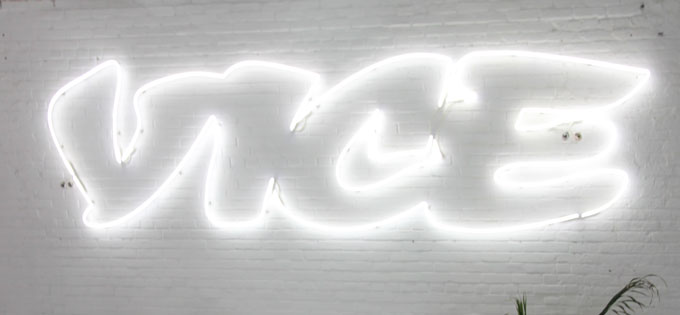In one of the office’s conference rooms, staffers Marina Garcia-Vasquez and Devin Greenleaf answered questions about their roles within the company and about what VICE represents to the people who read and watch its content. Garcia-Vasquez, a Bay Area native, makes it her job to be on top of the latest developments in art and culture, often attending gallery openings and shows around New York. She’s also an editor in chief of VICE’s website, instrumental in the collection of stories and communicating with the business development team. Her deep interest in art has also made her an advocate for representation and diversity in the works and artists VICE covers. “For every white male artist that we cover, we cover a woman of color, LGBT, [or] someone from a different country,” she says. “We really feel like we have to be reflective of the world and mirror the people that are reading us. For us, it’s really [about] connecting cultures and communities. I think art’s biggest power is in doing so.” Every day she seeks out up-and-coming creative types to showcase on the site—a far cry from the kind of work she did in her previous job on The Wall Street Journal. Tapping into the youth culture is much more important to her than embracing the philosophy of her former employer, which she thinks only appeals to white males with their own businesses. VICE, on the other hand, provides content and a platform for a lot of people conventional journalism doesn’t cater to.
FastForward Visits VICE - p2

Page 2 of 3